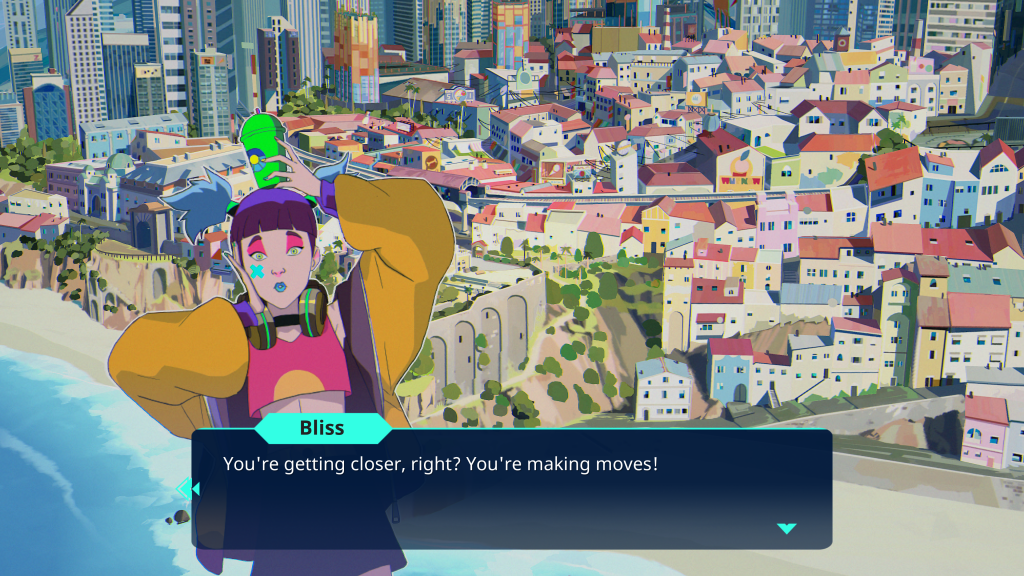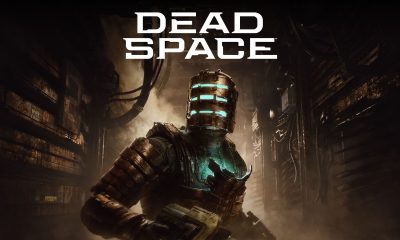Harmony: The Fall of Reverie Review (PC)

Don’t Nod, the wholesome creators behind the likes of Life Is Strange and Tell Me Why, have rustled up yet another narrative-driven experience, and it just so happens to fall under the banner of Harmony: The Fall of Reverie. Turns out, it’s a visual novel — and a pretty charming one at that. More to the point, though — it’s a choice-based video game, something that harkens back to the studio’s earlier works on consoles and PC. And if there’s one thing I’ve come to learn about Don’t Nod — it’s that choice-based blueprints with hearty narratives are its bread and butter, forever and always.
Of course, I had every intention of picking Harmony: The Fall of Reverie up when it hit the shelves earlier this week. In fact, in spite of my best efforts to subdue the hunger for a third extension to the Life Is Strange saga, it was the one product I felt drawn to. Question is, was it enough to drive back the desire to chew into something irresistibly hearty? Or another question would be, was it equally as good as the other award-winning IPs in the established developer’s catalog? Let’s discuss it.
The Future Is Nigh

Before we dive into the ins and outs of the somewhat convoluted progression system that Harmony employs, we’ll go ahead and cast a light on the story. Better yet, we’ll go back to the beginning—a time long before the power of clairvoyance, and twice as long before our hero’s underlying desire to connect with it and the divine form of her god-like persona.
To put you in the picture, Harmony: The Fall of Reverie puts you in the shoes of Polly, a wayward daughter who’s sent back to her hometown to search for her long-lost mother. Little to her knowledge, she nurses an underlying gift—an alias that’s connected to a mystical realm known as Reverie. It is here that Polly, otherwise known as the goddess Harmony, has the power of clairvoyance, a double-edged sword of a supernatural power that lets her see into the future and make vital decisions that may very well change the fate of the world around her. I know, right? It has Don’t Nod written all over it.
Needless to say that, with such a life-changing gift in the palms of her hands, the world of Reverie looks to Harmony to make decisions that’ll not only benefit its citizens, but the future of both dimensions — the human world known as Brittle, and the kingdom of Reverie. There’s a lot to unpack here plot-wise, as is the sheer volume of characters and backstories that contribute to one of several alternate realities. But in spite of its complexity, the story itself does a pretty solid job of introducing you to a myriad of routes and possibilities. To anyone without the attention span to spare, however, this is easy to mistranslate—an issue that, if not remedied in the earliest chapters, can leave you clueless later on.
Lost in Translation

The enchanting world of Reverie is home to a cast of personified spirits known as Aspirations: Bliss, Power, Bond, Truth, Chaos, and Glory. Each of these powerful inhabitants embody the essence of humankind, and share the common purpose of balancing out both Brittle and Reverie, as well as guiding Harmony during her time in Brittle as she continues to not only search for her mother, but unravel a conspiracy that connects the waylaid parent to a mega-corporation known as MK.
Again, this is all information that’s served up relatively early on in the plot line, further fleshing out that ever-evolving world and its treasure trove of lore. Understandably, if you don’t fully immerse yourself in the thick of these tall tales from the beginning, then conceptually, nothing really makes a great deal of sense. And it’s a crying shame, actually, that Don’t Nod bit off slightly more than it could chew when it came to drafting ideas for what would eventually go on to become one of the heftiest page-turners in the book.
Given the fact that this is a visual novel at heart, it’s fair to say that establishing a tight connection between the player and the characters is vital—instrumental, even, to help keep the immersion consistently high as the chapters gradually work towards the conclusion. Unfortunately, this isn’t always the case with Harmony — mainly down to the fact that it tries so desperately hard to cram as much material onto the plate as remotely possible. It wants to be clever, and it wants to develop a connection with its users, though more often than not, this ambition borders arrogance, and sadly dampens the fluidity of the narrative.
And Then There’s the Augural System

Arguably the primary focus of Harmony, the Augural system serves as a branching network of nodes—choice-based pathways that let you gather a glimpse of the future and, through the power of clairvoyance, influence your actions in the present day. Your goal here is to earn crystals for one of the several Aspirations that share the goal of wanting to become the new Heart of Reverie. It’s your job, as the one with the power to make crucial changes to the mythical kingdom, to mold these choices and side with your chosen Aspiration. In essence, your objective is to decide who will be the rightful ruler of Reverie. Easy enough, right? Well, not exactly.
There’s a problem to all of this, which is the game’s sheer lack of spontaneity — something that is thrown from the casket relatively early on in the decision-making process. Say, for example, you’ve decided to start acquiring crystals for Hope; you’re morally responsible for working towards the ultimate goal of handing the position of Heart of Reverie to that Aspiration. This, of course, removes a huge portion of the excitement, and instead puts you on a track where decisions feel somewhat weightless and sidelined.
Don’t get me wrong, the Augural system looks fantastic, and it makes use of Don’t Nod’s expertise in the storytelling field remarkably well. That said, it’s honestly tough to remain invested in a system that’s rather flawed and bogged down by purposeless jargon and A-to-B progression. And to be fair, that sort of thing really begins to grind your gears after ten-plus hours of making the same moves thrice over without an end in sight.
Stay a While, Not a Weekend

To be brutally honest, Harmony: The Fall of Reverie is dauntingly long, and does tend to overstay its welcome on occasion. Clocking in at just shy of twelve hours, it’s fair to say that, you know, a lot of it started to linger on the tongue after a few acts in. Things could’ve ended multiple times, and could’ve very well shaped up for a generally satisfying ending — but then the dawn of a new chapter would commence, once again rolling you back to a new set of underlying issues.
Clearly, Don’t Not wanted to go big or go home, so to speak, and so made the decision to compress as much into one package as virtually possible. As it turned out, though, there was just too much to comprehend—to the point of making me question whether or not even the devs knew what the point of the story was. It became a headache, and that’s something I never would’ve come to expect from such a narrative-focused studio.
Again, don’t get me wrong — as far as visual novels go, Harmony: The Fall of Reverie is beautiful. From an artistic point of view, it’s perhaps one of Don’t Nod’s best works in years. When all’s said and done, though, it’s the complexity of the overfilled universe that lets it down, to the point of making it a bit of a chore to endure right through to the bitter end.
Verdict

Don’t Nod clearly has a knack for flexing its creative muscles when it comes to chalking up genuinely compelling story-driven games. It’s in its blood, and it bodes remarkably well with those who’ve grown tired of roughing it in the same textbook-style RPGs that release on a weekly basis. No, Harmony: The Fall of Reverie is something new, something fresh and invigoratingly sprightly. Graphically, it’s stunning, and bears all the hallmark qualities to be considered one of Don’t Nod’s all-time greatests. It’s the limitations of it being a visual novel and nothing more that lets it down, though, surprisingly.
Of course, anyone who’s ever so much as taken a dip in the ocean that is a visual novel will surely feel right at home with Harmony: The Fall of Reverie. If you’re one for succumbing to distractions and drawn-out story arcs, on the other hand, then you’ll no doubt feel somewhat shortchanged and robbed of other key elements that make up a traditional video game. Swings and roundabouts, I suppose.
Harmony: The Fall of Reverie Review (PC)
A Page-Turner With One Too Many Chapters
There’s no denying the fact that Don’t Nod is a masterful storyteller, and perhaps one of the best in the business. However, ambition clearly got the better of the team when it came to fleshing out Harmony: The Fall of Reverie. As far as visual novels go, it certainly is wordy — but that’s really all it is — wordy.











